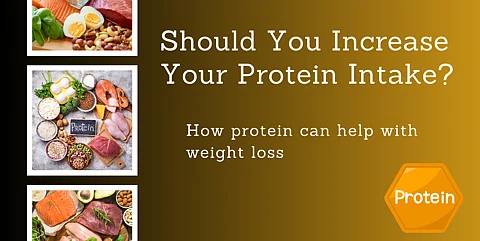
- Home
- About Us
- SOULIVITY TODAY Radio Show!
- COMMUNITY HUB
- GO SHOP by Soulivity!
- ColumnsColumns
- CultureCulture
- Lifestyle
- Contact Us!

Before considering any dietary alterations, a brief disclaimer is warranted: if you're under medication or managing medical conditions influenced by dietary changes, it is advisable to consult a registered dietitian.
With a decade of experience working closely with diabetes patients, seniors, and individuals on the path to recovery from injuries, as well as having served as a health coach for several years, I've encountered a common issue in numerous dietary plans: an inadequate intake of protein. The Mayo Clinic advises that protein should constitute between 10% to 35% of total caloric intake, and recommends a more personalized guideline of 0.83 grams of protein per kilogram of body weight per day.
For instance, if someone weighs 160 lbs (approximately 72 kg), this translates to a requirement of around 60 grams of protein daily. A standard four-ounce portion of chicken encompasses roughly 20g of protein. By having two eggs for breakfast, fish for lunch, and chicken for dinner, you'd easily fulfill the recommended protein intake for your weight.
This allocation of protein signifies that the remaining portion of your diet would be made up of carbohydrates and fats. On a 2000-calorie daily diet, 60 grams of protein equates to 240 calories, constituting roughly 10-15% of total caloric intake. Notably, the suggested 0.83 grams of protein per kilogram of body weight aligns more towards the lower threshold of the recommended range, leaving substantial room for carbohydrates and fats.
Although carbohydrates have garnered a somewhat negative reputation recently, I'm not advocating for their dismissal. My suggestion is directed at those aiming to reduce body fat, increase muscle mass, or both, without contraindications from medical conditions or medication to consider augmenting protein intake to approach the 35% mark of total caloric intake. For someone weighing 160 lbs, this would translate to around 175 grams of daily protein.
For individuals striving to lose weight or maintain a consistent exercise regimen, this elevated protein intake ensures ample resources for muscle development. What's more, adhering to a diet where 35% of calories come from protein sources such as poultry, beef, pork, fish, tofu, soy products, and eggs naturally entails a reduced consumption of carbohydrates and fats, without necessitating meticulous attention to it. In my capacity as a health coach, this recommendation consistently yielded positive results for those seeking fat loss.
Protein stands as an indispensable nutrient pivotal for bodily growth, upkeep, and repair. Comprised of amino acids, the foundational elements of cells, tissues, and muscles, its importance in maintaining a well-rounded and healthful diet is multifold. Several rationales underscore its significance:
Facilitates Weight Management: A key advantage of integrating more protein lies in its propensity to foster more effective weight control. Notably satiating, protein imparts prolonged feelings of fullness, curbing the likelihood of overindulgence or indulging in unhealthy snacks.
Fosters Muscle Growth: The role of protein in constructing and preserving muscle mass cannot be overstated. For those engaged in regular physical activity or weightlifting, an augmented protein intake expedites recovery, promotes muscle growth, and deters muscle depletion.
Amplifies Metabolism: Protein boasts a greater thermic effect compared to carbohydrates or fats, necessitating heightened energy expenditure for digestion and metabolism. This engenders an augmented caloric burn rate, thereby aiding weight loss and enhancing metabolic efficiency.
Sustains Bone Health: Protein is instrumental in upholding bone density and thwarting bone deterioration. Adequate protein consumption serves to mitigate osteoporosis risk and related bone ailments.
Accelerates Injury Healing: The indispensable role of protein in cellular and tissue reconstruction renders it pivotal for wound healing. Enhanced protein intake expedites recovery, bolsters wound repair, and diminishes susceptibility to infections.
Enhances Cognitive Function: Amino acids, the elemental constituents of protein, are vital for neurotransmitter synthesis, governing mood, memory, and cognitive capabilities. Attaining adequate protein levels fosters cognitive function, diminishing the odds of cognitive decline.
As we progress in age, the body's reparative processes escalate, warranting increased protein intake for repair. Again, if you have any medical conditions, check with a registered dietitian to make sure it is safe to make changes to your diet. Otherwise, try increasing your protein intake for a few weeks and see how it feels!
About the author:
Conrad (@conradfitness) is a 15-year fitness expert that holds a Master’s degree in Kinesiology, several national personal training certifications, and EMS certifications from XBody, Miha Bodytec, E-Fit, and Wiemspro. Conrad currently works as Director of Education and Technology at Bodybuzz.
